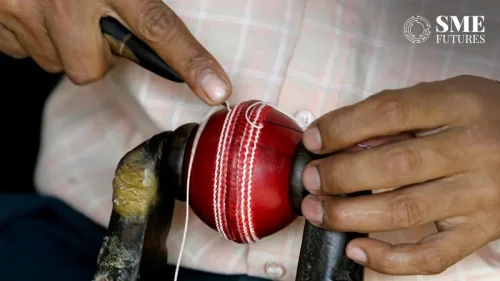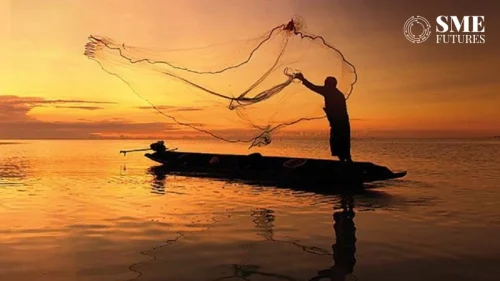The Krishi Vigyan Kendras (KVKs), better known as farm science centres, help rural youth in establishing functional linkages with processing industries, value-addition to farm produce and marketing of the produce. The adequate market potential will be essentially realized through packaging and branding of the products and constant upgradation of the technology. The rural youth exchange their programmes through interactive sessions. The skilled youth will be involved in on-going extension activities as an entrepreneur-cum-master trainer for multiplying the effects of technologies.
Thus, skilled rural youth will not only demonstrate the potential of agricultural activities and allied sector but will also act as role model for other youth. Moreover, the additional employment generated through their enterprises will absorb unemployed or under-employed rural youth in secondary agricultural and allied activities. Realizing the need to create interest and confidence in Indian rural youth by making agriculture more profitable, the Indian Council of Agricultural Research (ICAR) has launched a project, ‘Attracting and Retaining Youth in Agriculture’ (ARYA), with an outlay of Rs 100 crore under ‘National Agricultural Innovation Fund’.
The core objectives of the project are to attract and empower the youth in rural areas to take up various agriculture and allied sector enterprises for sustainable income and gainful employment; to enable the farm youth to establish network groups to take up resource and capital-intensive activities like processing, value- addition and marketing; and, to demonstrate functional linkage with different institutions and stakeholders for convergence of opportunities available under various schemes/ programmes for sustainable development of youth. Presently, the project is being implemented in 25 districts by KVKs as the ARYA centres.
Various institutes of ICAR, State Agricultural Universities (SAUs) and other agriculture-related institutes are acting as the technical partners of KVKs for technical backstopping. The governance of the ARYA project is through various committees with specific terms of references. The apex committee, which reviews the progress of the project and provides directions for implantation of the project, is headed by the director general, ICAR, New Delhi. The overall guidance is provided by the steering committee, which also monitors the physical and financial progress of the implementation of the project and reports to the apex committee.
A zonal committee is constituted for approving the work plans and guiding and monitoring the operations under ARYA project in KVKs of the concerned zone. Similarly, at the district level, a district committee functions to allocate and provide the funds for various approved activities, guide and coordinate with selected youth for proper operationalisation of the work plan and monitor the project on regular basis. Moreover, project screening committee in the Agricultural Extension Division, ICAR, New Delhi, identifies screens and recommends proposals to be executed under ARYA project.
The National Coordination Unit of the project is located in the Agricultural Extension Division, ICAR, New Delhi; whereas, zonal coordinating units are located at respective ICAR institutes. The concurrent monitoring, evaluation and mid-term corrections are an integral part of project implementation according to a report in the Indian Farming.
Each KVK has to at least 200 potential rural youth with the entrepreneurial aptitude of lesser than 35 years of age based on gender and social status by undertaking baseline/ benchmark survey. This selection of potential youth is done in accordance with the overall guidance provided by the district committee constituted at KVK level to guide, coordinate and monitor the project. The selected youth are given initial exposure, through exposure visits, involving successful agripreneurs, and interactive sessions under similar resource base and agro-climatic situations, about the prospects in agriculture and allied sectors for earning adequate living in rural areas. It would inspire them to pursue agriculture and allied business as a profession and help them select and take up the appropriate vocation. Rural youth with increased zeal are provided higher training in subsequent stages for production, processing, marketing, etc. Further, KVKs will establish agripreneurial development units which will act as entrepreneurial training units for farm youth.
The selected rural youth are offered with a basket of choices among agricultural enterprises to be opted based on their resource base, capabilities, local demand/ needs, etc. The KVKs evaluate the capabilities of selected youth and based on which a specific suitable agricultural venture is selected. Various enterprises like beekeeping, mushroom cultivation, seed processing, poultry farming, dairy farming, goatry, carp-hatchery, vermicomposting, etc. are focused under the project. Youth are be imparted entrepreneurial skills along with other essential skills required for selected enterprises and a business plan is developed. Considering categories of youth, school dropouts, college dropouts, graduates, etc. multiple skill development programmes are organized on farming and non-farming aspects. A technically feasible and economically viable business plan is designed considering resource requirement, available investment, marketing opportunities and threats, probable linkages, expected output and cost-benefit analysis. The youth are assisted by consultants in project formulation which l boost his/her self-confidence in managing the business effectively and profitably. The business plan is executed, focusing cost: benefit ratio, taking into account the effective and efficient management and production systems. It is also an integral part of the implementation of business plan to keep it on the right track through concurrent monitoring, evaluation and mid-term corrections.
The KVKs are also facilitating the youth in establishing entrepreneurial units at the farms or own location depending upon the market potential of enterprise and availability of fund. Thus, depending upon the type of enterprises (individual or group), operational costs to support critical inputs like seeds, fertilizers, small equipment may also be provided to farm youth. The purpose behind is to attract youth in agriculture and improve overall rural scenario by establishing successful economic models in rural India.
(PTI)










